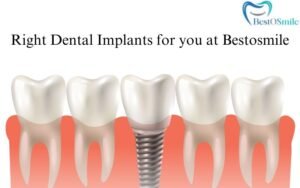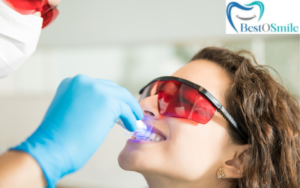
A healthy smile begins with consistent and effective dental hygiene. Proper oral care not only enhances the appearance of your teeth but also prevents common issues like cavities, gum disease, and bad breath. Good dental hygiene contributes to overall health, reducing the risk of infections and systemic diseases linked to poor oral care. Brushing, flossing, and regular dental checkups play a crucial role in keeping your teeth and gums in top condition. If you’re searching for tips to maintain dental hygiene, this guide will provide essential practices to help you achieve strong, healthy teeth and a confident smile for years to come.
Why Dental Hygiene Matters?
Good dental hygiene is about more than just having white teeth; it plays a crucial role in preventing oral diseases and maintaining overall health. Poor dental hygiene can lead to:
- Cavities and Tooth Decay: Plaque buildup leads to cavities, which can cause pain and discomfort.
- Gum Disease: Inflammation and infection of the gums can lead to serious conditions like gingivitis and periodontitis.
- Bad Breath: Poor oral hygiene allows bacteria to thrive, leading to persistent bad breath.
- Tooth Loss: Neglecting oral care can lead to severe decay and gum disease, ultimately resulting in tooth loss.
- Overall Health Issues: Studies have linked poor oral health to conditions like heart disease and diabetes.
Effective Tips to Maintain Dental Hygiene
1. Brush Your Teeth Twice a Day
Brushing your teeth is the foundation of good oral hygiene. Follow these tips for effective brushing:
- Use a fluoride toothpaste to strengthen enamel and prevent cavities.
- Brush for at least two minutes, covering all surfaces of your teeth.
- Use a soft-bristled toothbrush to avoid damaging your gums.
- Replace your toothbrush every 3-4 months or sooner if the bristles are worn out.
2. Floss Daily
Brushing alone cannot remove all food particles and plaque from between your teeth. Flossing helps prevent gum disease and cavities by:
- Removing food particles stuck between teeth.
- Preventing plaque buildup in hard-to-reach areas.
- Keeping gums healthy and free from infection.
3. Use Mouthwash
An antimicrobial mouthwash helps reduce bacteria in your mouth, freshens breath, and prevents plaque buildup. Choose a mouthwash that contains fluoride for added protection against cavities.
4. Maintain a Healthy Diet
What you eat impacts your dental health. Follow these dietary tips:
- Avoid sugary and acidic foods that can erode enamel.
- Eat calcium-rich foods like dairy products to strengthen teeth.
- Drink plenty of water to wash away food particles and bacteria.
- Consume crunchy fruits and vegetables like apples and carrots to naturally clean teeth.
5. Visit Your Dentist Regularly
Regular dental checkups are essential for maintaining dental hygiene. Your dentist can:
- Detecting and treating dental problems early.
- Perform professional cleanings to remove plaque and tartar.
- Provide personalized advice on oral care.
- Recommend treatments to enhance your smile.
6. Avoid Smoking and Tobacco Products
Smoking and tobacco use not only stain your teeth and cause persistent bad breath but also increase the risk of gum disease, tooth loss, and oral cancer. Quitting these harmful habits enhances your oral hygiene, improves gum health, and reduces the likelihood of severe dental and overall health complications.
7. Stay Hydrated
Staying hydrated is essential for maintaining saliva production, which naturally washes away food particles and bacteria, preventing plaque buildup. A dry mouth creates an ideal environment for bacteria to thrive, leading to bad breath, cavities, and gum disease. Drinking plenty of water supports overall oral health and keeps your mouth fresh and clean.
8. Use a Tongue Scraper
Your tongue harbors bacteria and food particles that can lead to bad breath, plaque buildup, and even infections. Cleaning your tongue daily with a tongue scraper or toothbrush removes these harmful residues, promoting fresher breath and better oral hygiene. Incorporating this simple habit into your routine enhances overall dental health.
9. Protect Your Teeth
Protecting your teeth from injury is essential for maintaining long-term dental health. If you play contact sports, wearing a mouthguard can prevent fractures, chipped teeth, and other dental trauma. Additionally, avoid using your teeth as tools to open bottles or tear packages, as this can lead to cracks, breaks, or enamel damage.
10. Teach Good Habits to Children
Teaching children good dental hygiene habits early helps establish a strong foundation for lifelong oral health. Make brushing and flossing enjoyable by using colorful toothbrushes, flavored toothpaste, and reward systems. Encourage them to brush twice a day and floss regularly, turning it into a fun and engaging part of their daily routine.
Conclusion
Maintaining dental hygiene is a simple yet essential part of overall health. By following these tips to maintain dental hygiene, you can prevent dental problems and enjoy a healthy, confident smile. Regular brushing, flossing, a balanced diet, and routine dental visits are key to keeping your teeth and gums in excellent condition. Prioritize your oral health today, and your smile will thank you for years to come!
For expert dental care and professional guidance, visit BestoSmile and book an appointment with our experienced dental specialists today!










